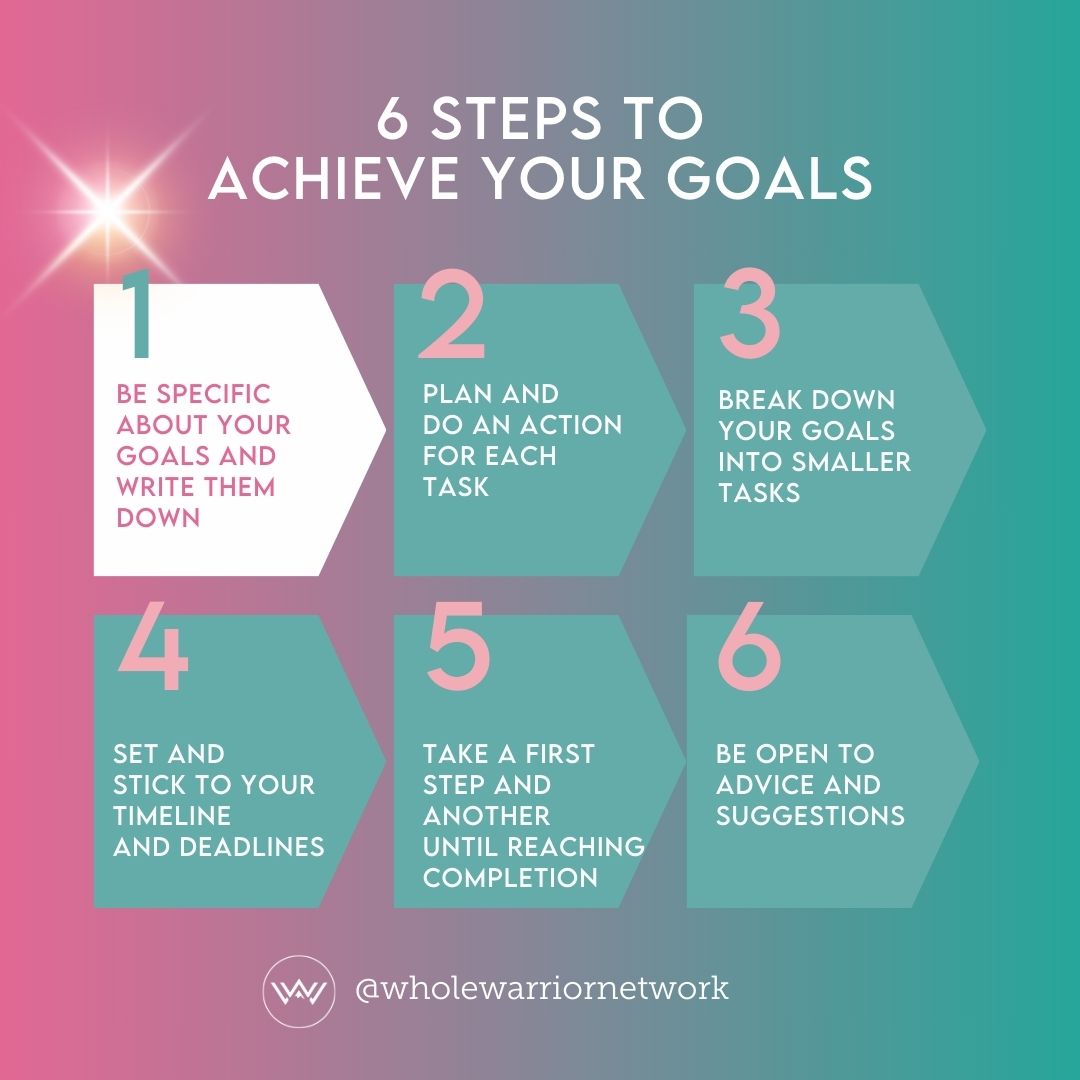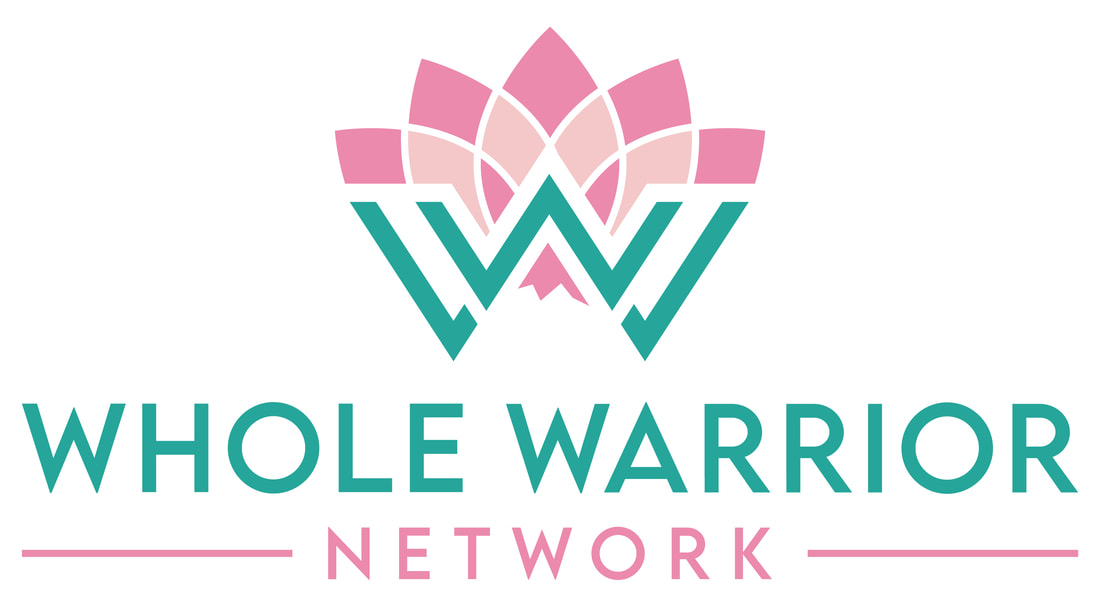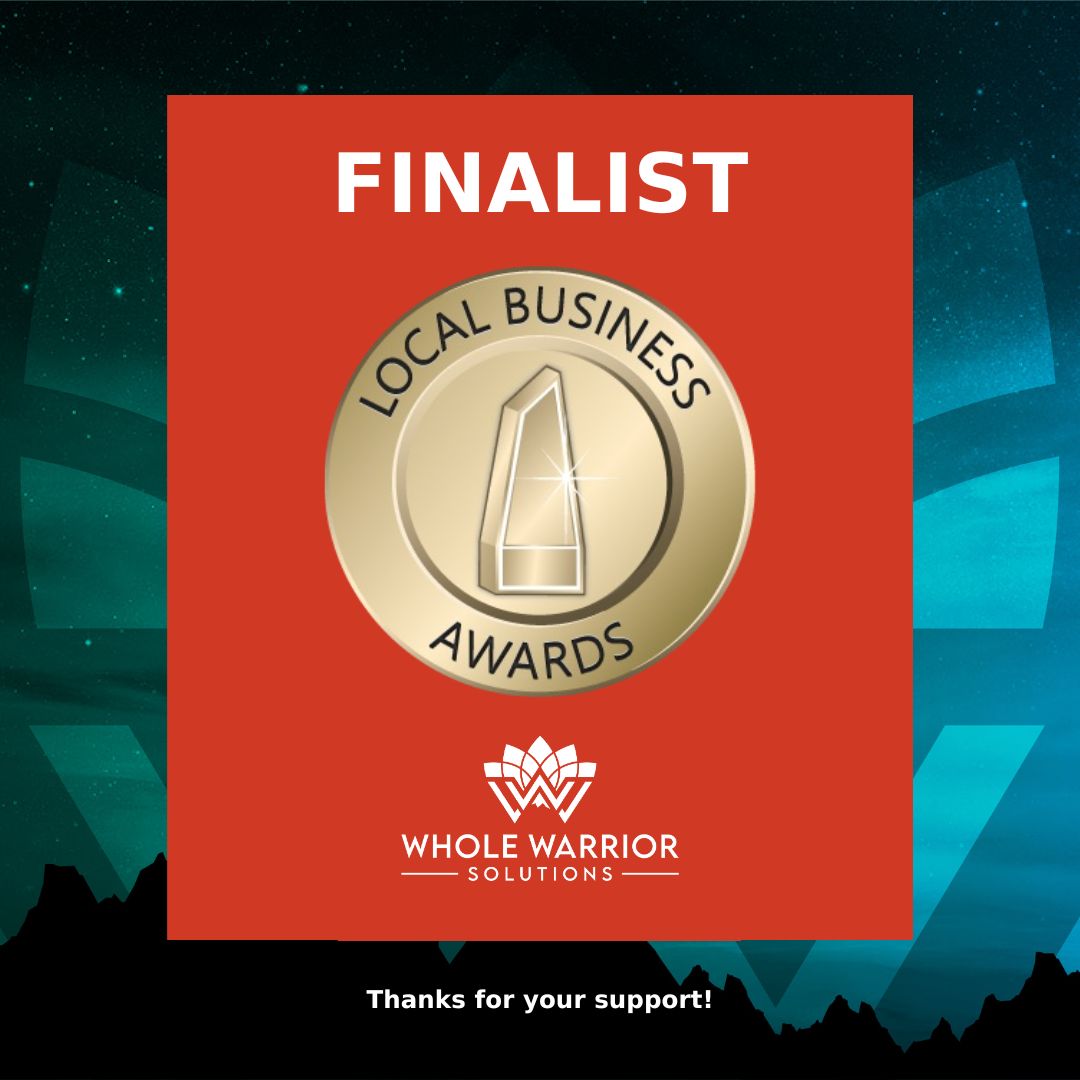|
As we approach the end of the year, it's a perfect time to reflect on the past year and set new goals for the upcoming one. At Whole Warrior Solutions, we believe in taking a holistic approach to goal-setting. This means not just looking at the tangible achievements but considering how our mental, emotional, and spiritual well-being contributes to our success.
To start, take inventory of the past year. What were your biggest accomplishments? What challenges did you face? What did you learn about yourself? Once you have a clear understanding of the past, you can start thinking about the future. When setting new goals, it's essential to make them SMART - Specific, Measurable, Achievable, Realistic, and Time-bound. This approach ensures that goals are clear, concise, and actionable. For example, instead of setting a goal to "get in shape," make it more specific by saying "exercise for 30 minutes, three times a week." Another critical aspect of setting new goals is to make sure they align with your values and priorities. At Whole Warrior Solutions, we provide person-centred services by considering each client's unique needs. Similarly, when setting new goals, make sure they are meaningful to you and align with your values. As a trauma-informed organisation, we understand that setting new goals can be overwhelming, especially if you've experienced trauma in the past. Take small steps and be kind to yourself along the way. Remember, progress is progress, no matter how small. Reach out if you'd like help with this. As we move forward into the New Year 2024, let's remember to approach goal-setting holistically, taking into account our mental, emotional, and spiritual well-being. By setting SMART goals aligned with our values and taking small, intentional steps, we can achieve anything we set our minds to. For empowerment with developing SMART goals reach out today! Engage in one of our services including life coaching, startup business coaching, counselling or psychosocial recovery coaching or support coordination. There's a few more tips on manifestation in the graphic below. Write the vision and believe in yourself! Happy new year! Light and Love Tania x
0 Comments
Self-care is an essential aspect of overall wellness, especially for those who participate in the National Disability Insurance Scheme (NDIS). It includes various activities and routines that aim to reduce physical and mental tension. According to the World Health Organisation, self-care is crucial enough to dedicate a whole month to it, culminating in International Self-Care Day on July 24th. Prioritising self-care means taking an active role in your own health, and the benefits extend beyond stress relief and mood improvement to disease prevention and longevity.
It is essential to note that some of the most effective ways to embody self-care are intentional and proactive. Here are four inspirations for unwinding this month and participating in a worldwide movement of health-conscious enjoyment. 1. Spend time outdoors Reconnecting with nature is a profound experience that touches on so many different aspects of overall wellness. Spending time outdoors comes with positive results such as improved heart health, soothed muscle tension, and reduction in levels of cortisol (often called the “stress hormone”). Outdoor time could mean anything from exploring a new walk in a lakeside park or getting a vigorous workout with Kayak-Cardio. 2. Pick up a mindful hobby Engaging in any activity that pulls your focus from the internal toward something external can be a healthy pursuit of mindfulness. For example, joining a group who do free tai chi in the park or practicing yoga and meditation weekly. Mary appeared almost unrecognisable as she walked down the hospital corridor shuffling her bare feet. She held out her arms. We embraced. She held on and sobbed, and sobbed. Our arms stayed locked until she was ready to release. Mary appeared an empty shell of the lively woman I used to support. Now Mary appeared broken, dishevelled, with matted hair, and wearing someone else's clothing. Mary stared at me with a vacant yet desperate gaze. It was like the life had been sapped from her. Devastated from years of abuse, forcibly separated from her children, deprived of all freedoms in a locked hospital ward. Mary had been scheduled under Section 22 of the Mental Health Act as she had been a risk to herself and her children allegedly.
Listening to Mary recall her ordeal made tears well up in my eyes. Mary described the process of being forcibly detained with six men physically restraining her during the scheduling and jabbing her with a needle - likened to the trauma of a sexual assault. There were no words to console. Sometimes it is the deep understanding of just sitting with the grief, together. We sat and cried. The fact Mary felt safe to share her dark night of the soul with me spurred me on to advocate for her with the hospital social worker and mental health nurse. I attended discharge planning meetings with Mary and committed to supporting her with followup tasks to help her rebuild her life. Mary had no family and really needed support to re-enter society. Whilst Mary stayed in hospital she received a number of labels or diagnoses about her mental health. Forced to attend groups with people living with significant mental health and forensic histories, including schizophrenia, bipolar, borderline personality disorders, narcissistic personality disorders and other's with complex comorbidities and behaviours. Mary described feeling scared living with people not of her choosing, some who were very unwell, gave her death stares, and others who followed her around the corridors. Mary said she stayed in her room to increase safety. Yet was expected to engage in group therapy and activities with people not of her choosing. After a month and much advocacy on my part, Mary was discharged and ready to start a new life. A new chapter, new beginning. Over the next year that I walked alongside Mary, I held space for her. Helped her find a new home, linked her with support workers, cleaner, a gardener, and visited her weekly. The home visits eventually tapered down to fortnightly then monthly. Over time Mary's energy and self-care practices returned, had enough energy and money to meet up in the community, going for walks, meeting for coffee, doing activities together, text messages and phone calls. During this recovery coaching journey Mary integrated trauma, engaged in holistic somatic practices, equine therapy, talk therapy, sound healing, mindfulness and meditation practices in line with her faith. Mary overhauled her concept of good nutrition, exercise, hydration and more. As her wellness and confidence increased I helped her get a part-time job with animals that she loved. I had the grand privilege of witnessing Mary's transformation to wellness! |
AuthorTania Gorry is the founder of Whole Warrior Solutions based on the Central Coast of NSW. Blog Categories
All
Blog Archives
December 2023
|
|
|
|
CONTACT US
Nexus, 3 Amy Close, Wyong NSW 2259, Central Coast, Australia PO Box 200, Wyong NSW 2259 Telephone: 1800 431 506 |
At Whole Warrior Solutions we provide Counselling, Coaching, Consulting and Community Services Australia wide. Established 2018
Empowering futures! Founder of Whole Warrior Network @wholewarriornetwork #ndisnetwork Established 2019 |
(C) Copyright 2018-2023 Whole Warrior Solutions | All rights reserved | ABN 59 941 852 312 | Privacy | Disclaimer



 RSS Feed
RSS Feed





